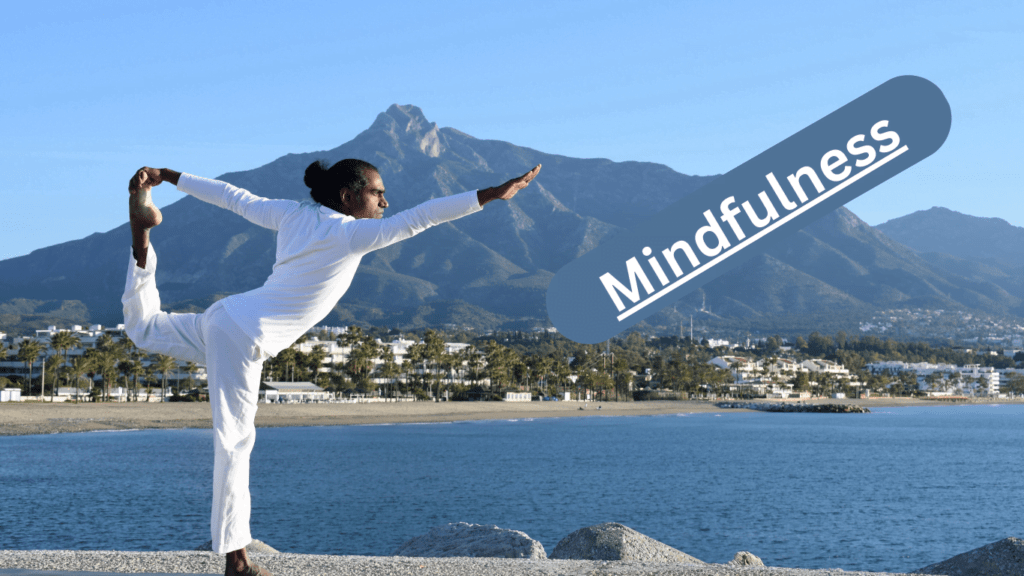
Discover the power of mindfulness and how it can improve your life. Read on to learn about the surprising benefits of mindfulness and how to incorporate it into your daily routine.
Mindfulness for a happy life!?
In our fast-paced world, it’s easy to get caught up in the daily grind and forget to slow down and appreciate the present moment. That’s where mindfulness comes in. Mindfulness is a practice that involves paying attention to the present moment without judgment. It can help you reduce stress, improve your relationships, and even boost your immune system. In this article, we’ll explore the surprising benefits of mindfulness and provide you with tips on how to incorporate it into your daily routine.
Surprising Benefits of Mindfulness You Need to Know:
Reduces stress and anxiety: Mindfulness has been shown to reduce stress and anxiety by helping individuals focus on the present moment rather than worrying about the past or future. When you’re mindful, you’re able to acknowledge your thoughts and feelings without judgment, which can help you manage them more effectively.
Improves mental and physical health: Studies have shown that mindfulness can improve mental health conditions such as depression and anxiety, as well as physical conditions such as chronic pain and high blood pressure. It can also boost your immune system, helping you stay healthy and ward off illness.
Enhances cognitive function: Mindfulness has been linked to enhanced cognitive function, including improved memory and attention span. It can also improve decision-making skills and help individuals become more creative and innovative.
Strengthens relationships: Mindfulness can help individuals improve their relationships by allowing them to be more present and attentive with others. It can also help individuals communicate more effectively and empathize with others.
How to Incorporate Mindfulness into Your Daily Routine
Start with small steps: Incorporating mindfulness into your daily routine doesn’t have to be overwhelming. Start with small steps such as taking a few deep breaths when you wake up in the morning or focusing on your breath during your commute.
Practice mindfulness meditation: Mindfulness meditation is a powerful tool for cultivating mindfulness. Find a quiet space, sit comfortably, and focus on your breath. Whenever your mind wanders, gently bring it back to your breath.
Practice mindful eating: Mindful eating involves paying attention to the taste, texture, and smell of your food without distraction. Try turning off the TV and putting away your phone during meal times to fully engage in the experience.
Engage in mindful movement: Mindful movement practices such as yoga or tai chi can help you connect with your body and cultivate mindfulness.
Common Myths About Mindfulness
Mindfulness is only for spiritual or religious people: While mindfulness has roots in Buddhism, it is not a religious practice. Anyone can practice mindfulness regardless of their spiritual or religious beliefs.
Mindfulness is about emptying your mind: Mindfulness is not about emptying your mind or stopping your thoughts. It’s about acknowledging your thoughts and feelings without judgment and learning to observe them without getting caught up in them.
Mindfulness is time-consuming: Incorporating mindfulness into your daily routine doesn’t have to be time-consuming. Even a few minutes of mindfulness meditation or deep breathing can make a big difference in your overall well-being.

FAQs
Q: Can mindfulness help me sleep better?
Q: Do I need to sit cross-legged to practice mindfulness?
Q: How can I incorporate mindfulness into my daily routine?
Conclusion
Mindfulness is a simple yet powerful practice that can help you cultivate greater awareness and presence in your life. By practicing mindfulness regularly, you can experience a wide range of benefits, including reduced stress, improved focus and productivity, better emotional regulation, and greater overall well-being. Whether you’re new to mindfulness or have been practicing for years, there are many resources available to help you deepen your practice and experience the full range of benefits that mindfulness has to offer. So why not give it a try and see for yourself?
The surprising benefits of mindfulness are waiting for you!
